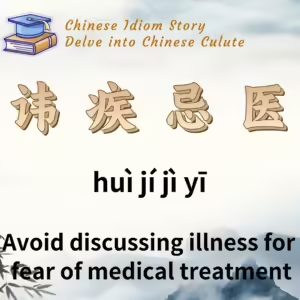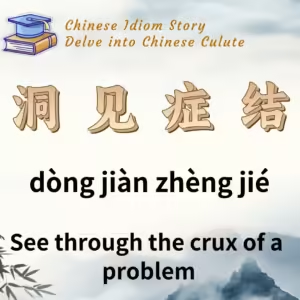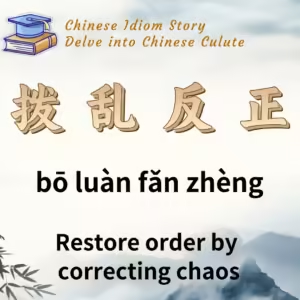
Chinese Idiom: 悔过自新 (Hui Guo Zi Xin)
English Translation: Repent and start anew
pīn yīn: huǐ guò zì xīn
Idiom Meaning: This idiom refers to the act of correcting one’s mistakes and starting afresh.
Historical Source: Records of the Grand Historian (《史记 · 扁鹊仓公列传》).
Idiom Story:
During the Western Han dynasty, there was a man named Chun Yu Yi from the state of Qi, known for his medical skills. He learned under his fellow townsman Yang Qing, who taught him the ancient methods of healing. Chun Yu Yi quickly gained fame for curing ailments that other doctors could not.
However, his reputation took a devastating turn when he failed to cure the concubine of a wealthy merchant. As a result, he was falsely accused of being a quack and causing her death. In 167 BC, during the thirteenth year of Emperor Wen’s reign, local officials sentenced him to corporal punishment, which included tattooing his face, mutilating his nose, and amputating his feet. Since Chun Yu Yi had previously served as a county official in the Grand Warehouse of Qi, he was to be transported to Chang’an for his punishment.
Feeling frustrated and despondent, Chun Yu Yi lamented the fact that he had no sons to plead for him, saying, “Having daughters instead of sons means no one can help in times of need.” His five daughters were heartbroken and angry upon hearing this. The youngest, Ti Ying, resolved to accompany her father to Chang’an and try to rescue him.
Upon arriving in Chang’an, Ti Ying sought an audience with Emperor Wen, but the guards at the palace gates would not let her in. Determined, she wrote a heartfelt letter to the emperor:
“My father was an honest official, highly regarded in Qi. Now he is punished by law. I grieve for those who have died; they cannot come back to life, and those who are punished cannot recover. Although he wishes to repent and start anew, there is no way for him to do so. I am willing to become a palace maid to redeem my father’s punishment, allowing him the chance to start anew.”
The essence of her letter expressed deep sorrow for her father’s plight and the plight of all those subjected to such cruel punishments. After reading Ti Ying’s letter, Emperor Wen was deeply moved. Not only did he agree to absolve Chun Yu Yi of his sentence, but he also realized the cruelty of corporal punishment and officially abolished it.
From this poignant story, the phrase “虽然欲改过自新” was later simplified to the idiom 悔过自新, symbolizing the hope for redemption and the chance to correct one’s mistakes.






